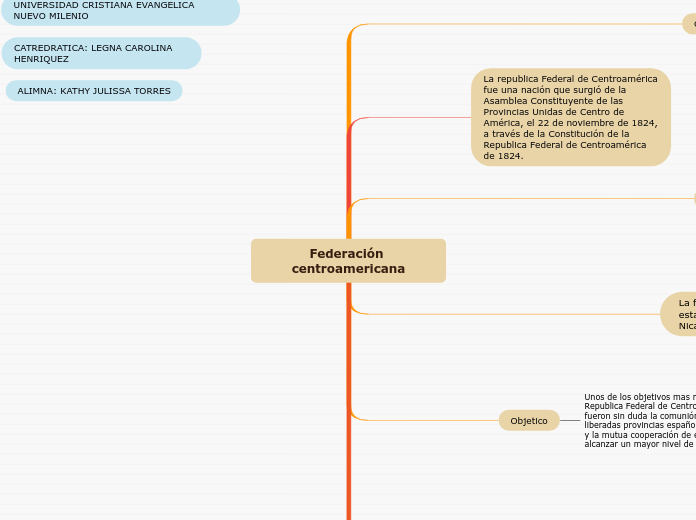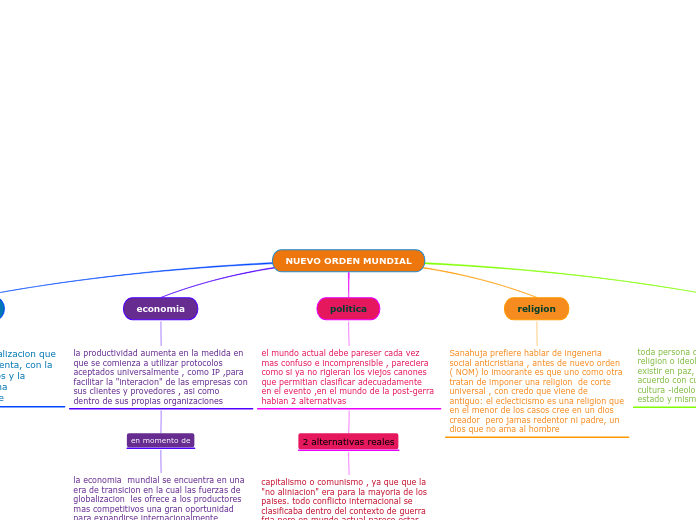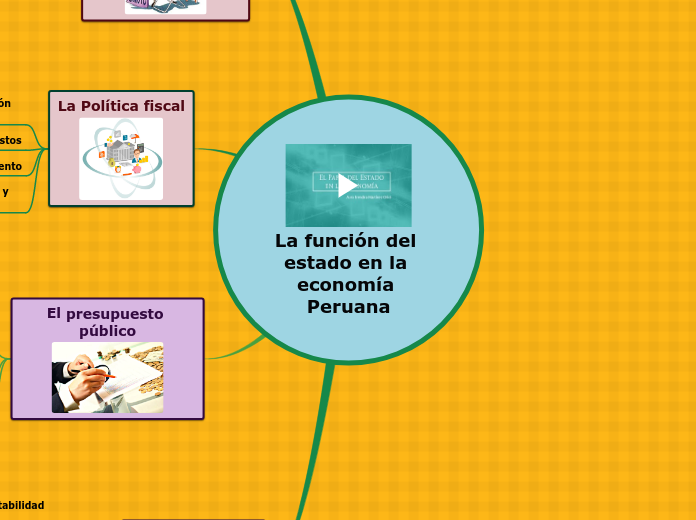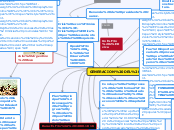ALIMNA: KATHY JULISSA TORRES
CATREDRATICA: LEGNA CAROLINA HENRIQUEZ
UNIVERSIDAD CRISTIANA EVANGELICA NUEVO MILENIO
Federación centroamericana
To name your story, you have to think about the overall message and what you want your audience to understand from the story. Also, make it relevant and easy to remember.
Fracaso a los siguientes factores:
The ending of a story is essential. We all know that if the ending is weak, what happened before loses its importance. So make it unpredictable, but fair. A resolved ending answers all the questions and ties up any loose threads from the plot.
Factor social
This is the closure section of the story.
See examples of possible outcomes below:
- all problems have been solved
- it's clear how each one of your characters ends up
- your main character is transformed by the challenge
Desigualdad en la ley hacia residentes extranjeros y residentes originarios del istmo.
Try answering these questions in order for you to come up with a closure:
- Have all problems been solved?
- Is it clear what happens with all your characters in the story?
- Has the challenged transformed your main character?
- How do the characters feel in the end?
Sentimientos localistas en la provincia
Resentimiento de las iniciativas privadas provincianas contra Elite capitalina
Try answering these questions to come up with a closure:
- Have all the problems been solved?
- Is there a clear picture of what happens with each character in the story?
- Has the challenge transformed your main character?
- How do the characters feel in the end?
Factores políticos
This is the moment when the main character surpasses the last obstacle and finally faces their greatest challenge.
The climax usually follows one of these patterns:
- realization
- resolution
- choice
Type in your answer.
Falta de experiencia administrativa y política
Desestabilización acosada por las guerras civiles
Diferencias Ideológicas extremas entre los partidos políticos
-Sistema Federal
Objetico
Unos de los objetivos mas resaltante de la Republica Federal de Centro América fueron sin duda la comunión de la recién liberadas provincias españolas de la region y la mutua cooperación de estas para alcanzar un mayor nivel de desarrollo.
Logros de la Federación Centroamericana
Se establecieron relaciones diplomáticas con Estados Unidos, Holanda y Inglaterra
Se declaro el respeto a los derechos de los ciudadanos
Se decreto la división de los poderes del Estado en 1824
Judicial
Legislativo
Ejecutivo
La abolición de la esclavitud, el 31 de diciembre de 1823
La federación esta formada por 5 estados: Guatemala, El Salvador, Nicaragua, Honduras y Costa Rica.
En 1838 se formo un sexto Estado, Los Altos, con capital en Quezaltenango, con los territorios del occidente de Guatemala y parte del actual Soconusco de Chiapas México.
Cambio Demográfico
The setting (time & place) of a story can change throughout the plot.
Durante el periodo comprendido en 1750 y 18501 se consolidaron una serie de cambios demográficos que provocaron una transformación del regimen demográfico tradicional.
Your story can take place wherever your imagination will take you to.
For example: in an elevator, in an enchanted forest, etc. Don't forget to give details of the environment each time the setting changes, otherwise, the story can be confusing. Also, mention the seasons as each of them has unique weather and events.
La republica Federal de Centroamérica fue una nación que surgió de la Asamblea Constituyente de las Provincias Unidas de Centro de América, el 22 de noviembre de 1824, a través de la Constitución de la Republica Federal de Centroamérica de 1824.
In the beginning of the story (or the exposition), you will need to introduce the setting and characters. You might also want to introduce the main conflict. This part of the story is important because it gives the reader necessary background information and maybe even a first insight into a character’s personality.
Características
Characters are essential to a good story. Usually, the protagonist(s) is/are the most affected by the plot. Introduce a character by focusing on their actions, interests, and occupation, as the physical appearance doesn't make a difference in most cases.
Entre 1830 y 1840 las tropas hicieron lo que pudieron en su lucha contra el levantamiento armado.
Entre 1829 y 1838 la Federación conto con el fuerte liderazgo del general Francisco Morazán.










